September 29 stands as one of history’s most eventful days, witnessing the rise and fall of empires, groundbreaking discoveries, and moments that shaped our modern world across centuries of human achievement.

Politics and Government Events on September 29
1923 – The Mandate for Palestine Takes Effect

The British Empire officially assumed control over Palestine through the League of Nations mandate system. This administrative framework established the legal foundation for British governance in the region.
The mandate’s implementation created new political realities that would shape Middle Eastern geopolitics for decades. Local populations found themselves under foreign administration as colonial powers redrew regional boundaries.
1971 – Oman Joins the Arab League
The Sultanate of Oman gained full membership in the Arab League, marking its integration into regional politics. This diplomatic milestone strengthened Oman’s position within the broader Arab world.
The nation’s inclusion reflected its growing political stability and strategic importance in the Persian Gulf. Oman’s membership enhanced the organization’s geographical reach and regional influence.
1972 – Japan Establishes Relations with Communist China
Japan normalized diplomatic relations with the People’s Republic of China while severing official ties with Taiwan. This historic shift fundamentally altered East Asian geopolitical dynamics.
The diplomatic breakthrough opened new economic opportunities between Asia’s largest economies. Japan’s recognition of Beijing demonstrated the growing international isolation of the Republic of China.
1992 – Brazilian President Fernando Collor Impeached
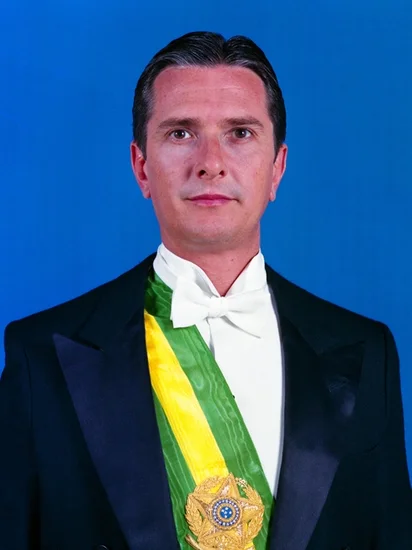
The Brazilian Congress voted to impeach President Fernando Collor de Mello amid corruption allegations. This constitutional crisis tested Brazil’s democratic institutions and rule of law.
The impeachment proceedings marked a pivotal moment in Brazilian political history. Citizens demonstrated their commitment to democratic accountability through peaceful constitutional processes.
2005 – John Roberts Confirmed as Chief Justice
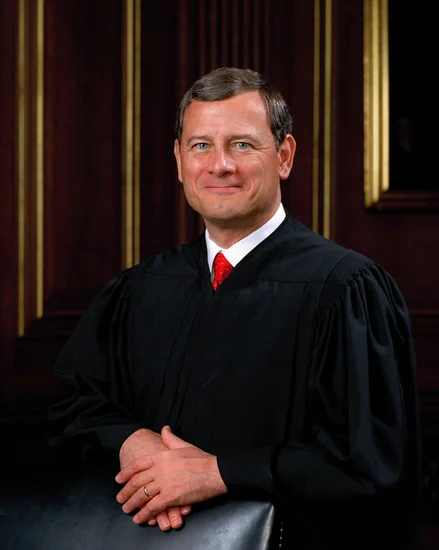
The United States Senate confirmed John Roberts as the 17th Chief Justice of the Supreme Court. His appointment represented a generational shift in American judicial leadership.
Roberts brought extensive appellate court experience to the nation’s highest tribunal. His confirmation established conservative judicial philosophy as the court’s dominant influence for years ahead.
Military and Naval History on September 29
1911 – Italy Declares War on the Ottoman Empire
Italy launched military operations against the Ottoman Empire, beginning the Italo-Turkish War. This conflict marked Italy’s first major imperial expansion into North Africa.
The war demonstrated modern military technology’s effectiveness against traditional Ottoman forces. Italian naval supremacy in the Mediterranean proved decisive in securing strategic territorial gains.
1918 – The Hindenburg Line Broken by Allied Forces
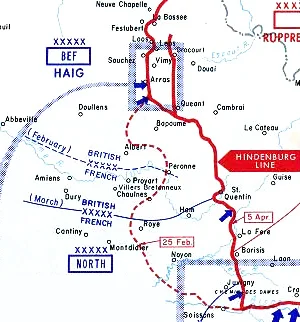
Allied forces successfully breached Germany’s most formidable defensive position in World War I. This military breakthrough accelerated the collapse of German resistance on the Western Front.
The offensive shattered German morale and exposed their inability to maintain defensive positions. Allied commanders recognized that victory was now within their grasp.
1941 – Babi Yar Massacre Begins
German forces initiated the systematic murder of Jewish civilians near Kiev with local collaboration. This atrocity represented one of the Holocaust’s most horrific single episodes.
The massacre demonstrated the Nazi regime’s genocidal intentions and the complicity of local populations. Over 33,000 people perished in this two-day period of unprecedented brutality.
1990 – YF-22 Raptor Makes First Flight
The prototype for America’s most advanced fighter aircraft completed its maiden flight successfully. This technological achievement represented a quantum leap in military aviation capabilities.
The aircraft’s stealth technology and advanced systems provided unprecedented air superiority advantages. American military planners recognized the strategic implications of this revolutionary fighter design.
Science and Discovery Milestones on September 29
1954 – CERN Convention Signed
European nations established the world’s largest particle physics laboratory through international cooperation. This scientific collaboration transcended national boundaries to advance fundamental research.
The organization’s creation demonstrated European commitment to peaceful scientific advancement. CERN would later become the birthplace of the World Wide Web and countless discoveries.
1957 – Kyshtym Nuclear Disaster Occurs
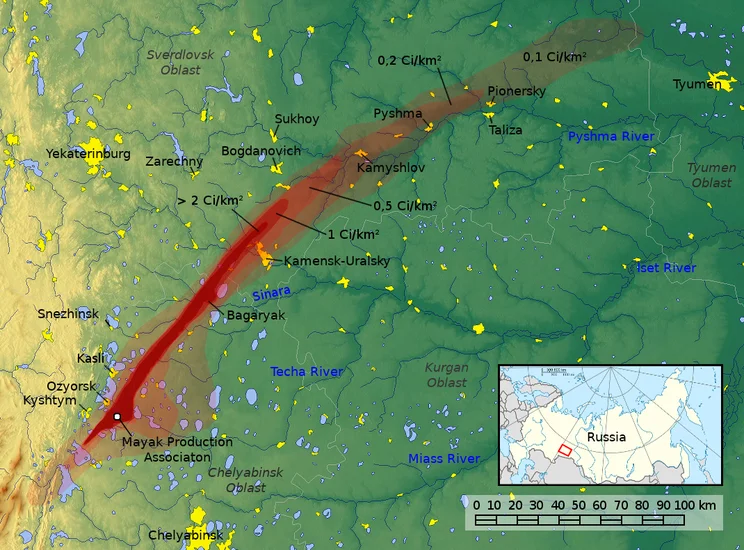
The Soviet Union experienced its worst nuclear accident before Chernobyl at a secret facility. This catastrophic event contaminated vast areas of the Ural Mountains region.
Soviet authorities concealed the disaster’s extent from both domestic and international observers. The accident highlighted serious safety deficiencies in early nuclear programs.
1988 – Space Shuttle Discovery Launches
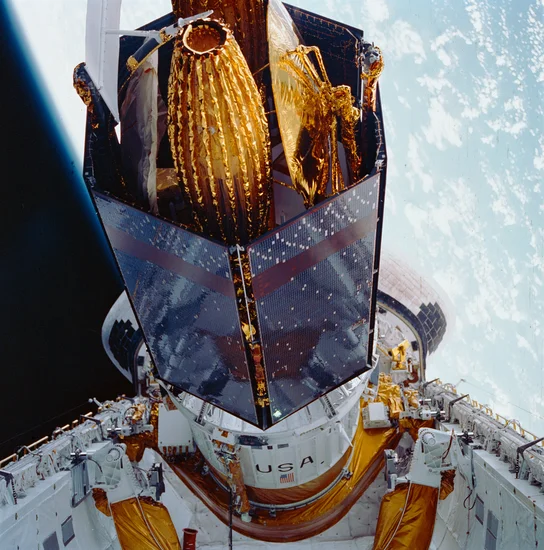
NASA successfully returned to human spaceflight with the first mission since the Challenger disaster. This triumphant launch restored American confidence in space exploration capabilities.
The mission demonstrated improved safety protocols and renewed commitment to space research. Astronauts aboard Discovery carried hopes for America’s continued space leadership.
2004 – SpaceShipOne Achieves Historic Spaceflight

Burt Rutan’s privately-funded spacecraft completed the first of two flights required for the Ansari X Prize. This achievement marked the dawn of commercial space travel.
The successful flight demonstrated that private enterprise could accomplish what only governments had previously achieved. Space tourism suddenly transformed from science fiction into practical reality.
Cultural and Arts Events on September 29
1907 – Washington National Cathedral Cornerstone Laid

Construction began on America’s second-largest cathedral with an elaborate cornerstone ceremony. This architectural masterpiece would require over eight decades to complete.
The Gothic Revival structure represented America’s growing cultural sophistication and religious diversity. Architects designed the building to serve as a spiritual center for the entire nation.
1990 – Washington National Cathedral Construction Completed

The Cathedral Church of Saint Peter and Saint Paul reached completion after 83 years of construction. This architectural marvel became a symbol of American spiritual and cultural achievement.
The finished cathedral hosted state funerals, national services, and countless religious ceremonies. Its completion marked the fulfillment of a vision spanning multiple generations.
1990 – Tampere Hall Opens in Finland

Finland inaugurated the Nordic region’s largest concert and congress center with tremendous fanfare. This cultural facility established Tampere as a major European cultural destination.
The venue’s advanced acoustics and modern facilities attracted world-class performers and international conferences. Finnish cultural life gained a prestigious new platform for artistic expression.
Religious and Social Events on September 29
1918 – Bulgaria Signs Armistice of Salonica
Bulgaria withdrew from World War I through a separate peace agreement with Allied forces. This decision effectively ended Bulgarian participation in the Central Powers alliance.
The armistice spared Bulgaria from further devastating military campaigns and civilian suffering. Bulgarian leaders recognized that continued fighting would only bring greater destruction.
1923 – Syria and Lebanon Mandate Takes Effect
France officially assumed administrative control over Syria and Lebanon under League of Nations authority. This mandate system established European colonial governance throughout the Levant.
Local populations found their political aspirations subordinated to French imperial interests. The mandate’s implementation created lasting tensions between colonial authorities and Arab nationalism.
1975 – WGPR Becomes First Black-Owned Television Station
Detroit’s WGPR-TV began broadcasting as America’s first African-American-owned television station. This milestone represented a significant breakthrough in media diversity and representation.
The station provided employment opportunities for Black journalists, producers, and technical staff. African-American communities finally gained access to television programming that reflected their experiences.
Business and Economic Events on September 29
2008 – Stock Market Crashes After Bailout Vote Fails
American financial markets collapsed when Congress rejected the Emergency Economic Stabilization Act. This dramatic sell-off intensified the developing Great Recession crisis.
The Dow Jones Industrial Average plummeted over 700 points in a single trading session. Investors panicked as lawmakers failed to address the mounting financial system crisis.
2007 – Calder Hall Nuclear Plant Demolished

The world’s first commercial nuclear power station was destroyed in a controlled explosion. This symbolic moment marked the end of the nuclear power industry’s pioneering era.
The demolition represented both technological progress and environmental concerns about nuclear energy. Engineers carefully planned the destruction to minimize radioactive contamination risks.
1932 – Battle of Boquerón Concludes
Paraguay and Bolivia fought the final day of this decisive Chaco War engagement. The battle’s outcome significantly influenced the broader territorial conflict’s direction.
Both nations suffered tremendous casualties while competing for control of potentially oil-rich territories. The engagement demonstrated modern warfare’s devastating impact on smaller nations.
Transportation and Infrastructure on September 29
1959 – Lockheed Electra Crashes in Buffalo, Texas
A commercial airliner crashed shortly after takeoff, killing all 34 people aboard. This tragic accident highlighted ongoing safety concerns in commercial aviation.
Investigators examined mechanical failures and pilot error as potential causes of the disaster. The crash prompted new safety regulations and improved aircraft maintenance procedures.
1981 – Iranian Military Transport Crashes
An Iranian Air Force C-130 Hercules crashed during a training exercise, killing 80 personnel. This military aviation disaster represented one of Iran’s worst peacetime aircraft accidents.
The crash occurred during heightened tensions following the Iranian Revolution and ongoing regional conflicts. Military officials investigated potential mechanical failures and pilot training deficiencies.
2006 – Brazilian Aviation Crisis Triggered

A Boeing 737 and Embraer business jet collided over the Amazon rainforest, killing 154 people. This mid-air collision exposed serious deficiencies in Brazilian air traffic control systems.
The disaster prompted comprehensive reforms in aviation safety protocols and equipment modernization. Brazilian authorities faced intense scrutiny over their aviation infrastructure capabilities.
Sports and Recreation on September 29
1923 – First Women’s Track and Field Championships
American women competed in their inaugural national track and field championships. This groundbreaking event marked a significant milestone in women’s athletic participation.
Female athletes demonstrated their competitive abilities across multiple track and field disciplines. The championships challenged prevailing social attitudes about women’s physical capabilities.
2009 – Samoa Earthquake Triggers Deadly Tsunami
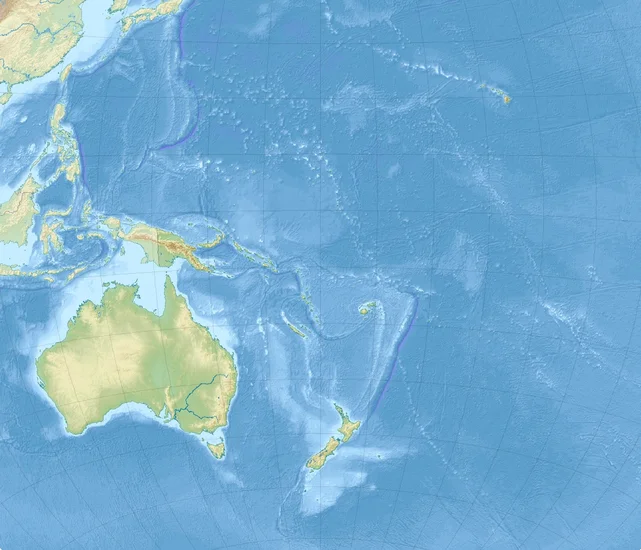
A magnitude 8.1 earthquake generated devastating tsunami waves that killed over 189 people. This natural disaster highlighted the Pacific region’s vulnerability to seismic events.
Coastal communities across Samoa, American Samoa, and Tonga faced unprecedented destruction. International rescue teams responded rapidly to provide emergency assistance and medical care.
1940 – Two Aircraft Collide and Land Safely
Two Royal Australian Air Force Avro Ansons collided mid-air but remained locked together during landing. This extraordinary aviation incident became legendary in military flying circles.
Both aircraft crews survived the collision and subsequent emergency landing against all odds. The event demonstrated exceptional pilot skill and remarkable mechanical resilience.
Notable Births on September 29
1901 – Enrico Fermi, Italian-American Physicist
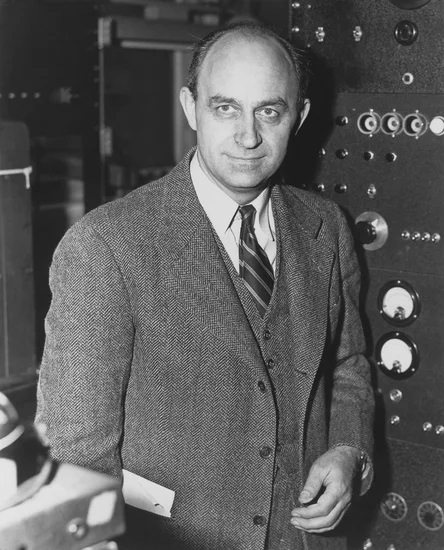
The future Nobel Prize laureate entered the world in Rome, Italy. His childhood curiosity about mathematics and physics foreshadowed his revolutionary scientific contributions.
Fermi would later create the first controlled nuclear chain reaction beneath the University of Chicago. His theoretical and experimental work laid the foundation for nuclear energy and atomic weapons.
1907 – Gene Autry, American Singing Cowboy
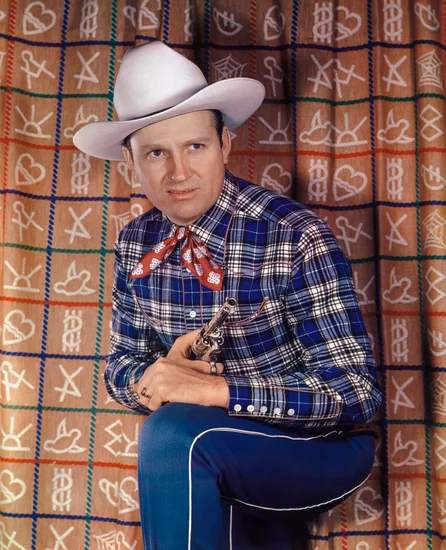
The future entertainment legend was born in Tioga, Texas. His early exposure to country music and cowboy culture shaped his distinctive performing style.
Autry would become America’s most beloved singing cowboy through radio, films, and television. His performances helped establish the Western genre as a dominant entertainment form.
1913 – Stanley Kramer, American Film Director

The future Hollywood director was born in New York City. His early interest in social issues would later influence his choice of film subjects.
Kramer directed numerous acclaimed films addressing racial prejudice, nuclear war, and social justice. His movies challenged audiences to confront difficult moral and political questions.
1931 – Anita Ekberg, Swedish-Italian Actress

The future international film star was born in Malmö, Sweden. Her striking beauty and presence would make her one of cinema’s most recognizable figures.
Ekberg achieved worldwide fame through her role in Federico Fellini’s “La Dolce Vita.” Her performance in the Trevi Fountain scene became one of cinema’s most iconic moments.
1935 – Jerry Lee Lewis, American Rock and Roll Pioneer
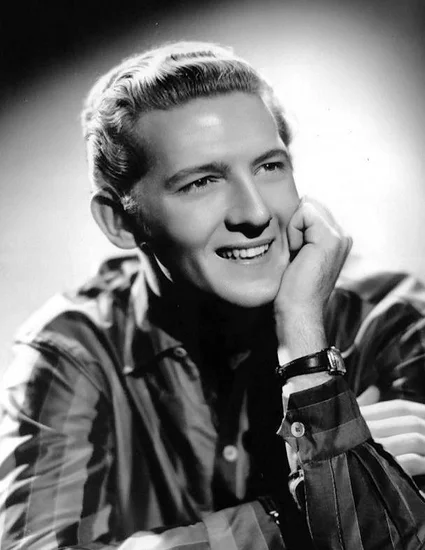
The future music legend was born in Ferriday, Louisiana. His early exposure to gospel, country, and blues music shaped his revolutionary performing style.
Lewis would become one of rock and roll’s most dynamic performers through his explosive piano playing. His wild stage presence and musical innovations influenced generations of musicians.
1943 – Lech Wałęsa, Polish Solidarity Leader
The future Nobel Peace Prize laureate was born in Popowo, Poland. His working-class background would later inform his labor organizing and political activism.
Wałęsa led the Solidarity movement that eventually toppled communist rule in Poland. His courage and determination helped inspire democratic revolutions throughout Eastern Europe.
1948 – Bryant Gumbel, American Television Journalist

The future television personality was born in New Orleans, Louisiana. His early interest in sports and current events shaped his broadcasting career path.
Gumbel became one of America’s most respected television journalists through his morning show hosting. His interviewing skills and news judgment established him as a trusted media figure.
1958 – Silvio Berlusconi, Italian Media Mogul

The future prime minister was born in Milan, Italy. His family’s construction business provided the foundation for his later media and political empire.
Berlusconi would dominate Italian media and politics for decades through his business acumen and controversial leadership. His influence extended across European politics and international affairs.
Notable Deaths on September 29
1902 – Émile Zola, French Novelist

The celebrated author died in Paris from carbon monoxide poisoning at age 62. His naturalist novels had revolutionized French literature and social commentary.
Zola’s defense of Alfred Dreyfus in the famous “J’Accuse” letter demonstrated his commitment to justice. His literary works exposed social inequalities and championed the working class.
1913 – Rudolf Diesel, German Engineer
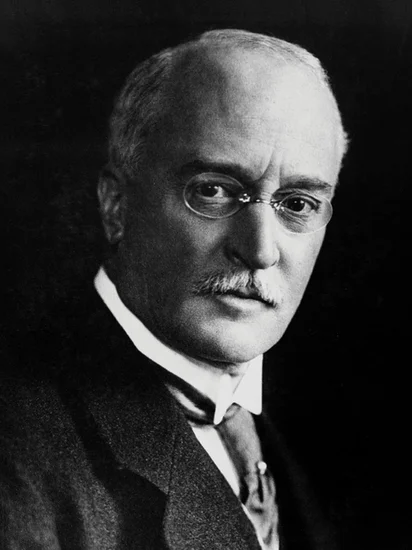
The diesel engine inventor died under mysterious circumstances aboard a ship at age 55. His revolutionary engine design transformed transportation and industrial power.
Diesel’s innovation provided more efficient fuel consumption than gasoline engines. His death remains unexplained, with theories ranging from suicide to assassination.
1927 – Willem Einthoven, Dutch Physiologist
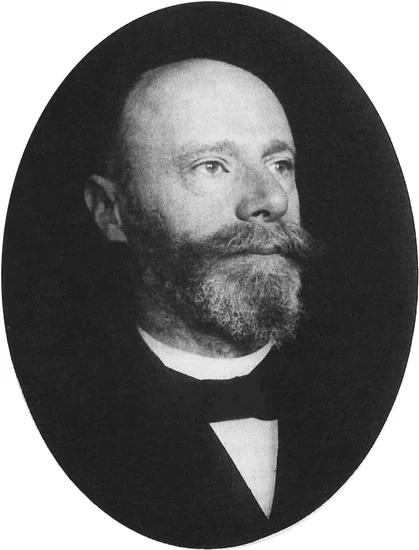
The Nobel Prize-winning inventor of the electrocardiogram died in Leiden at age 67. His medical breakthrough revolutionized cardiac diagnosis and treatment.
Einthoven’s ECG machine enabled doctors to detect heart problems without invasive procedures. His invention saved countless lives and advanced cardiology as a medical specialty.
1973 – W. H. Auden, Anglo-American Poet
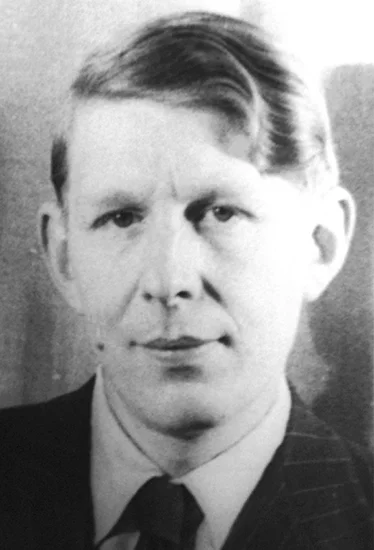
The renowned poet died in Vienna at age 66. His verse had captured the anxiety and hope of the 20th century experience.
Auden’s poetry combined intellectual rigor with emotional depth and technical mastery. His works influenced generations of poets and established him as literature’s leading voice.
1975 – Casey Stengel, American Baseball Manager

The legendary Yankees manager died in Glendale, California at age 85. His tactical innovations and colorful personality had revolutionized baseball management.
Stengel guided the Yankees to ten American League pennants and seven World Series championships. His unique communication style and strategic mind made him baseball’s most quotable figure.
1981 – Bill Shankly, Scottish Football Manager

The Liverpool FC legend died in Liverpool at age 68. His management philosophy and passion had transformed the club into English football’s dominant force.
Shankly’s motivational skills and tactical knowledge established Liverpool’s winning culture. His dedication to the club and supporters made him a beloved figure in football history.
2010 – Tony Curtis, American Actor
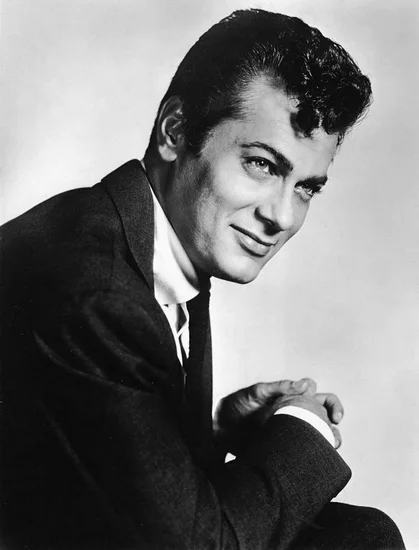
The Hollywood star died in Las Vegas at age 85. His performances had established him as one of cinema’s most versatile leading men.
Curtis successfully transitioned from pretty-boy roles to serious dramatic performances. His work in “Some Like It Hot” and “Sweet Smell of Success” showcased his remarkable range.
Holidays and Observances on September 29
Michaelmas – Feast of Archangels
Christian churches worldwide celebrate the Feast of Saints Michael, Gabriel, and Raphael. This ancient observance honors the three archangels mentioned in biblical texts.
The feast traditionally marks one of the four quarter days in the English calendar. Many communities hold special services and cultural celebrations honoring these heavenly messengers.
World Heart Day
The World Health Organization designated this date to raise awareness about cardiovascular disease prevention. Medical professionals worldwide organize screening events and educational programs.
This global initiative emphasizes the importance of heart-healthy lifestyle choices and regular medical checkups. Communities worldwide participate in activities promoting cardiovascular wellness and disease prevention.
Victory of Boquerón Day in Paraguay
Paraguay commemorates its military victory over Bolivia during the Chaco War. This national holiday celebrates Paraguayan courage and determination in defending territorial sovereignty.
The observance honors soldiers who fought in the brutal Chaco conflict over disputed territory. Paraguayan citizens participate in parades and ceremonies remembering their nation’s military heritage.
Inventors’ Day in Argentina
Argentina celebrates the creativity and innovation of its inventors and scientists. This national observance encourages technological advancement and scientific research.
The holiday promotes education in science, technology, engineering, and mathematics fields. Argentine schools and universities organize special programs highlighting local inventors and their contributions.
